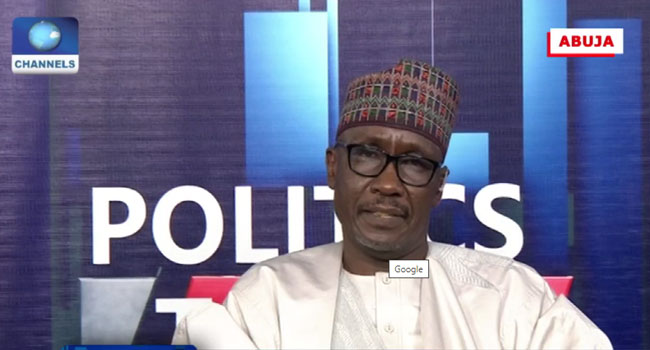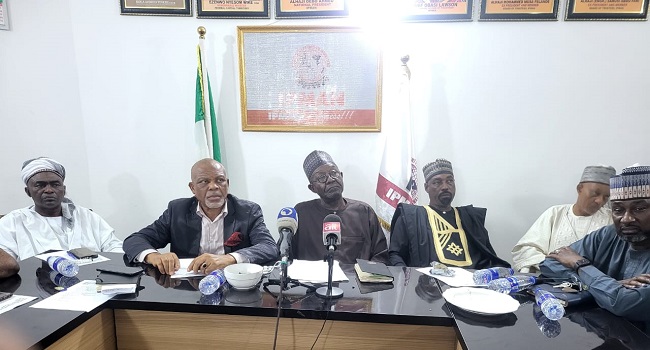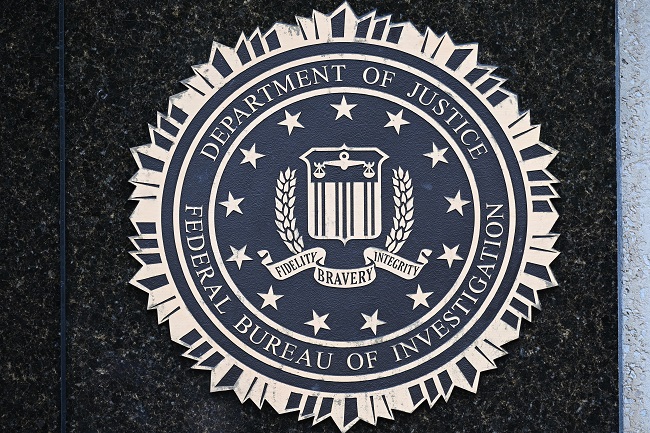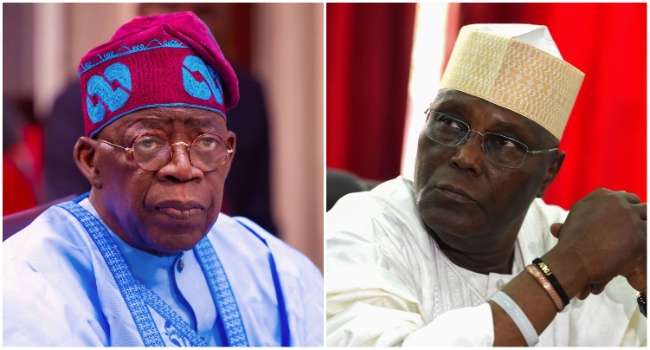The Group Marketing Director of the Nigerian National Petroleum Corporation (NNPC), Mele Kyari was Channels Television’s Politics Today on Wednesday.
Kyari spoke on a wide range of issues affecting the Nigerian petroleum sector, efforts being made by the government to ensure Nigerians have Premium Motor Spirit (PMS).
He also addressed the increase in the price of PMS, and why the government cannot continue to pay subsidy.
Below are the excerpts of the interview:
How have you been contending with the barrage of criticisms from all and sundry because this matter strikes at the core of the Nigerian people?
One thing we must understand is that: where is the criticism coming from? That is the question we need to ask. Probably people who are not aware of what is going on and what is best of those issues that have come up. I am sure you are aware that petroleum subsidy has been a big issue in this country for over 20 years. Not only that, but every corruption that you are aware of in the downstream sector of this industry is also in one way or the other connected to this fuel subsidy. I can give you an example, several lases were issued for people to bring up refineries across the country and none could deliver, probably very few exceptions could deliver.
The reason is very simple. People are not sure that when you deliver petroleum products, at what price are you going to sell at the gate of your refineries? And because we know that those prices are not market-determined and we know that there will be a subsidy element on it, everybody staggers to deliver on this. The end result is that this burden is left to the Nigerian National Petroleum Corporation (NNPC) and the government as a whole. What that means is that government has to provide that gap that exists and of course, it is very understandable for people to get angry that prices have gone up just like the prices of every commodity when it goes up. There can be difficulties. There can be challenges that people will naturally face. When prices go up, the other natural thing that must happen is that your income needs to increase so that you are able to procure the things that are now delivered at half prices. You can’t do this anywhere in the world if there is no productivity and there will be productivity except there is growth in infrastructural development and things are able to work. Therefore, there is a connection between production and consumption. What subsidy does is to remove that connection and people are literally saying smoking cigarette and expecting results. To make this decision, I can share this with you that only a Buhari regime can make this decision. The reason is very simple – people will not appreciate the fact that the lost opportunity is a situation where you are spending enormous resources, over 10 trillion naira in the last eight to nine years all trying to service that. That doesn’t include the element of FX resources that are lost to this. When you put all these together with all the resources and all the distortions that it creates, the natural reaction is “Look, I don’t want to lose this. I am getting this cheap and therefore with this distortion, I am going to suffer. It is not true.” A subsidy itself by every meaning is an elitist thing. It is only the elites that who will have 3, 4, 5 cars in the house, fill the tanks and also feel comfortable doing this. The ordinary man is not the beneficiary.
First, he loses in infrastructure, hospitals are not built, schools are not built and ultimately, the brunt of even corruption in the downstream sector is transferred to the ordinary man. Overall, you lose everything, and you get nothing. So, when people get angry, there is an outburst of anger around this. And this is coming from people who are not aware of this situation, they are not aware of the loss that they have and most importantly, they are being engineered and delivered into making those statements. We understand this very perfectly. We are the national oil companies. Our role is to ensure energy security. But you can’t do this until you are able to deliver cost and that cost is lost daily as the prices of crude oil go up, you lose that value and you are unable to do many things. So the outburst is very understandable but I also believe very strongly that it is misplaced because Nigerians are not aware of the opportunities lost.
In 2012, the issue of hike in the price of fuel almost shut down this country because Nigerians were in a rage about that. One of the issues that came up for debate was trust in government. The question is that we have seen personalities in government who have debated that fuel subsidy is a scam but why has it taken this long for the government of the day to remove the subsidy? It was called under-recovery at some point.
Absolutely, the reason it took this long to come to this point is the persuasion of Mr president himself. Mr President is a pro-people President and I share this very passionately. Ordinary people should not suffer from the acts of people in government by acts of institutions. Also, the government is there to provide welfare to the people. This cannot be delivered except government intervenes. So there is a very difficult conversation in government to see how do we move away from this situation into a situation of reality where the market will determine the prices without hurting the ordinary people. This is a tough conversation, Mr President until very recently was not convinced that we should make this move. And his reason was very simple. What do I do with ordinary people? The ordinary people as you are away may also not be aware that they are bearing the brunt of this situation and it is clear to them also that we can’t afford this anymore. Today, as a result of the COVID-19, even prior to that, collapse in the prices of crude oil, our government resources are going down, revenues are coming down. There is simply no possibility of government continuing to bear the bill of probably up to combine foreign exchange of the value of the product of almost to the tune of N2trillion per annum. This is huge and the government doesn’t have that resources today. So, you cannot give what you don’t have. More importantly, it is obvious that the ordinary people deserve infrastructure, schools, hospitals and they are able to have social security and without resources, you cannot do that. You cannot smoke a cigarette and expect result the next day which is why the government is very convinced today that “look we need to shift to this reality, we need to free those resources, we need to remove the discussion that exists between the consumption of what is available and consumption of what you have to afford.” This is why it took time. It was a very tough and difficult decision for Mr President but today, we know that this is the right thing to do. You will see a colossal increase in the downstream sector of the industry because it will be driven by the private sector, people will be able to build refineries. Prices will ultimately reduce in the sense that when you produce locally, you will able to have local prices of these products, not to a very large extent but clearly some decline in the cost of products even as the market moves.
So overall, it will lead to businesses coming back, refineries being created by the private sector, money paid for the establishment of infrastructures, schools and all that and ultimately, the common man will benefit. This is the reason that we saw, and we are convinced that doing this will serve the befit of the overall common good.
That is a detailed explanation of those who are in support of deregulation. But since you argue that it must come, and a lot of people who are in support of it are also thinking in that direction, but the big question is what are you doing to buffer the effect that comes after all?
When you say effect, is the effect in the rise of prices? So, when prices of petroleum increases, there is some connection, not very definite. There is some connection between the rise of petroleum and that of other commodities in the market. But it is not always true. If there is any reason to even think that this can happen, what it does is the collateral benefit that it will bring. More people will be in employment, we are able to create infrastructures also more jobs, we are able to create hospitals, the government is able to fund hospitals, schools and so on. The long-term benefits outweigh the immediate pains. What we have to understand today is that at current market price, even in comparative terms across the West African sub-region even globally, despite all the numbers that you see today, we know today that Nigeria’s petroleum prices particularly PMS is the lowest in the whole world. You will say why? Because we are not producing petroleum today, unfortunately, our refineries are not working today. You can ask the question, why is it cheaper? It is because of volume? 70 per cent of West Africa supply and consumption of PMS is in Nigeria. And what that means is that you cannot deliver to the market at prices that are cheaper than other economies, because it is an economy of scale. And because we have a more suitable economy in the whole of the West African region, the stability of our currency in relative to any other currency in West Africa is better. So definitely, you can deliver prices that are lower than average in the region. Where does that take you to? Because people will see that pains will come. Those pains are very temporary for two reasons – because we just cannot afford it and most importantly is the long-term benefits that await every pain that we see today. Yes, people will be very justified to say that when we are increasing prices, the price of rice will rise and so on and so forth. We have seen this play out in the telecom sector. I’m sure you will recall that when the telecom sector came, competition came in over time. Today, we are paying cheap because there is more supply of the telecom services. We know that government means well, we know that this government, particularly Mr President can be trusted with these resources. And therefore, delivery will be actual. The ordinary person knows that Mr President is determined to ensure that delivery is made. So when you see this benefit against the fact that there is a tendency for lack of trust which makes it impossible for people to trust the government is that you will use this money to smoke.
I don’t think anyone will argue with the fact that smoking cigarette is not a good business and you will ultimately lose. I know also that there are other palliatives that the government is doing.
I am talking about the direct practical impact of the buffer that you are trying to explain. You are talking about long-term buffer for Nigerians. What is the direct practical buffer for the average Nigerians who will see hike in the price of transportation and so many other issues in Nigeria? Is there any that this government planned before making the move?
Absolutely, there is a relationship. I am sure you are aware of the Economic Sustainability Programme of this administration. The whole idea of the economic sustainability is to inject resources into agriculture, manufacturing to small scale industries so that more jobs will be created, more people will be employed and then activities pick up in the industry. In banking, banks are able to lend more money to people and people are also able to bank and a number of activities are also able to take place.
There is over N2.7trillion of investments government is doing in this respect. The effect of that will be jobs will be created, people will have more resources, more pay will come from resources you don’t know. There are a number of initiatives which are targeted at the vulnerable. Making cash available to the low income-earners in the country, those unemployed placed on some kind of small stipends that will make them survive and ultimately, you will see the relationship between these activities of government will completely complement the realities that will come as a result of the hike in petroleum. I am very sure that these activities around this sustainability programme will bring the cushion and of course the long term. Much as we can avoid the long term, the long term can be one year, two years or three years or 10 years.
In a short term, when you see realities come into consumption, demand and supply balance, and the realities that people can recover costs, you will see institutions will come into deliver on man transport activities. I am sure you are aware that the number of railway projects are on course, they will be delivered. Many of them will ease transportation, roads are being constructed on monumental proportion. I am not a politician, but I know, and I have been around for 55 years, I am not a kid. I have seen what has happened in this country compared to the number of resources available to government today and what was available in very many years that we all know. Looking at the level of deliveries in roads, transportation, electricity, production of resources used in hospitals, we haven’t seen this kind of growth compared to the resources that are available in relative terms.




